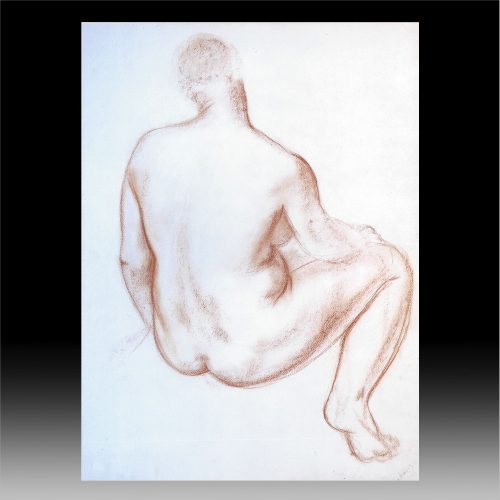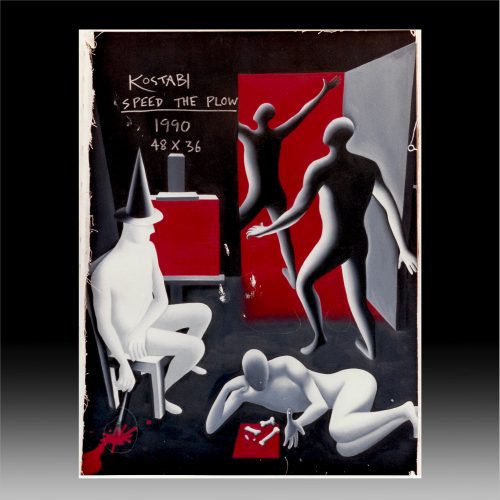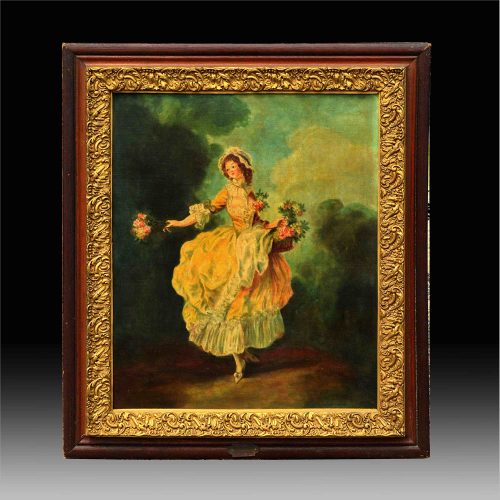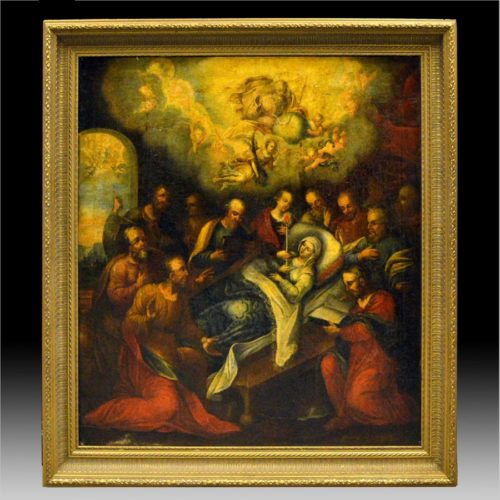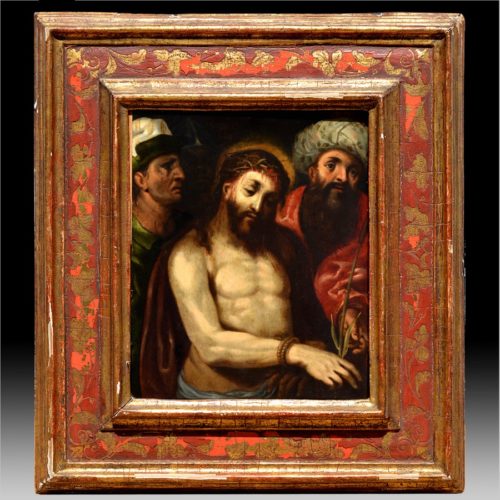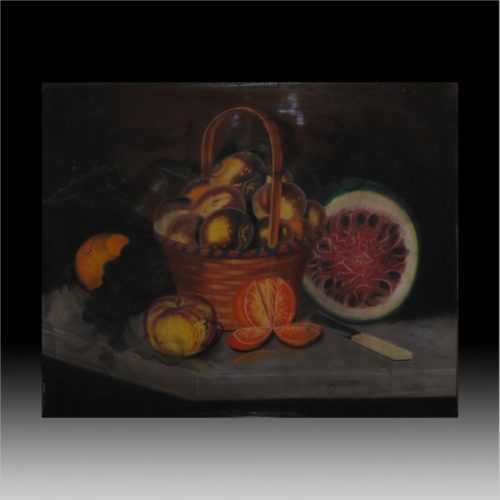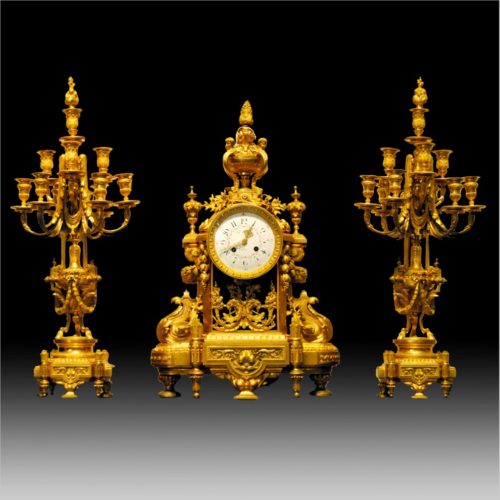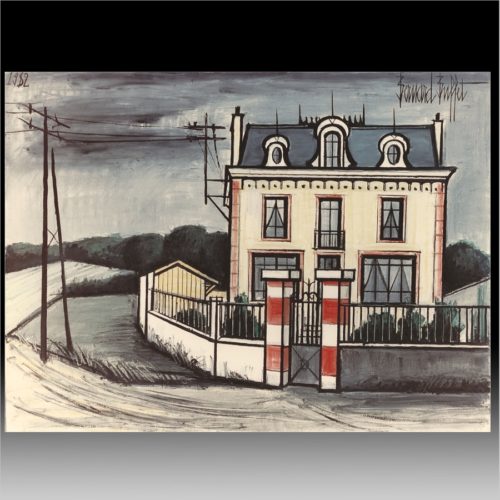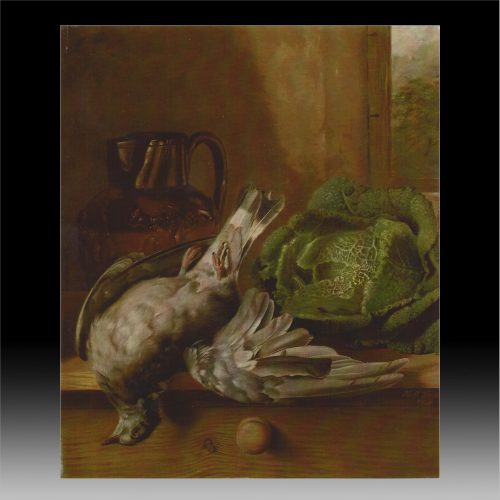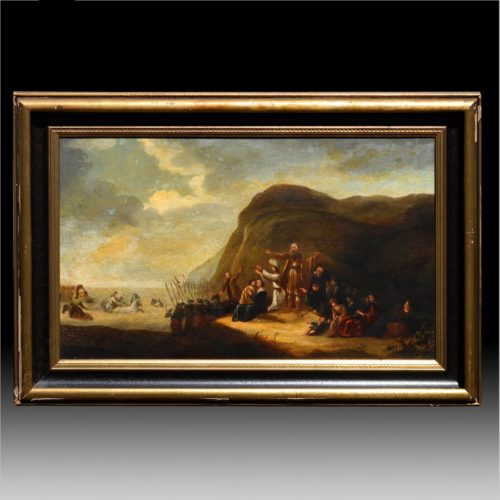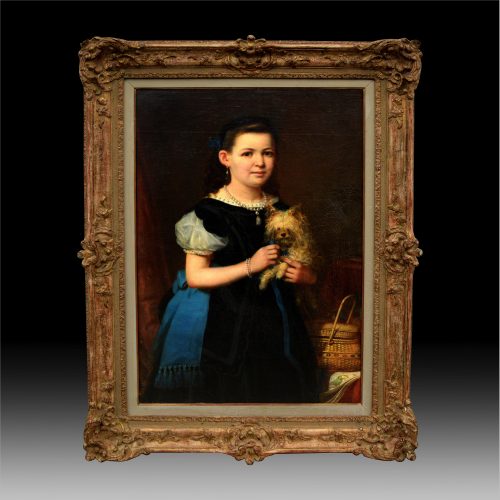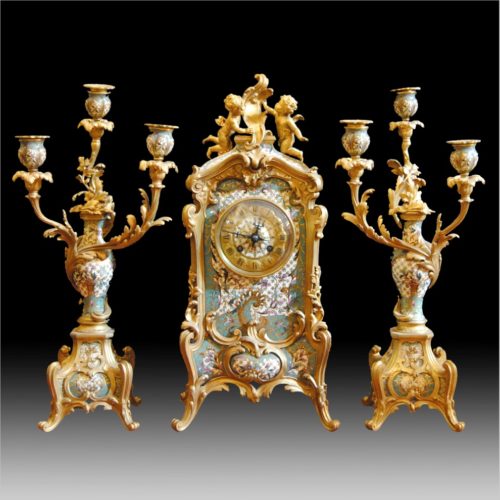-
André Derain (French, 1880-1954) “Nu assis de dos” Red chalk on paper mounted on board 25” x 18 ½” Signed bottom right COA by M. Kellermann PROVENANCE: D.G. Kelekian, NY Estate of Elizabeth Norcott Exhibited Paris, Le Petit Palais, 1937 Chicago, the art institute, 18th International exhibition of watercolors, pastels, drawings and monotypes, March-May, 1939, no. 119 Minneapolis, Art Institute, 1940
-
Mark Kostabi (American, b. 1960) “Speed The Plow” Oil on canvas 48”x 36” Executed in 1990 Signed, titled and inscribed upper left on the back
-
Artist Unknown, 19th Century Lady in Nature 19¼ x 24 in. Frame with Plate of Artist and Title, but hard to decipher.
-
Agostino Carracci (Italian, 1557-1602) “Ecce Homo” Oil on copper 11 7/8 x 9 ½ inches (30 x 24.3 cm) CL102794-66 325502-2 @NB-1040 #20
-
John Joseph Enneking 1841-1916 Still Life with Fruits Pastel 22” x 18” @AC-NB
-
A French Gilt-Bronze Clock Garniture. By Cotlin, Paris, Circa 1880. Comprising a mantel clock and a pair of ten-light candelabra; the clock surmounted by an urn with four monopodiae feet, the circular white enamel dial inscribed R. Cotlin Paris, the movement inscribed to the reverse RC and numbered 116, flanked to the sides by scrolling mounts, on acanthus feet; the candelabra en suite. Clock Dimensions: Height of 29 ½ inches, Width of 17 ¾ inches, and 9 inches deep. F-1170
-
Bernard Buffet (French, 1928-1999) “Maison Dans La Campagne” Oil on canvas 38" x 51" Painted in 1982 COA by M. Garnier
-
Henry George Todd (British, 1846-1898) ‘Still Life of Game,Copper Urn and Cabbage on a Wooden Ledge’ signed and dated ‘H.G. Todd/1875’ lower right oil on canvas 20x 17 in. (50.9 x 43.2 cm)
-
Willem de Poorter (Dutch, b. 1608) “Pharaoh’s Army Drowning in the Red Sea” Oil on panel 20 x 32 ½ inches (50.7 x 82.5 cm) CL102794-108 123802-2 @NB-1040 #16
-
American School 19th Century “Little Girl and Her Dog” Oil on canvas 35” x 23 ¾” SJN2699-444 @AC-NB
-
A Clock Set with a Pair of Three-Light Candelabra. Height of Clock: 18 inches Height of Candelabra: 17 ¾ inches AC40000 F-1119

